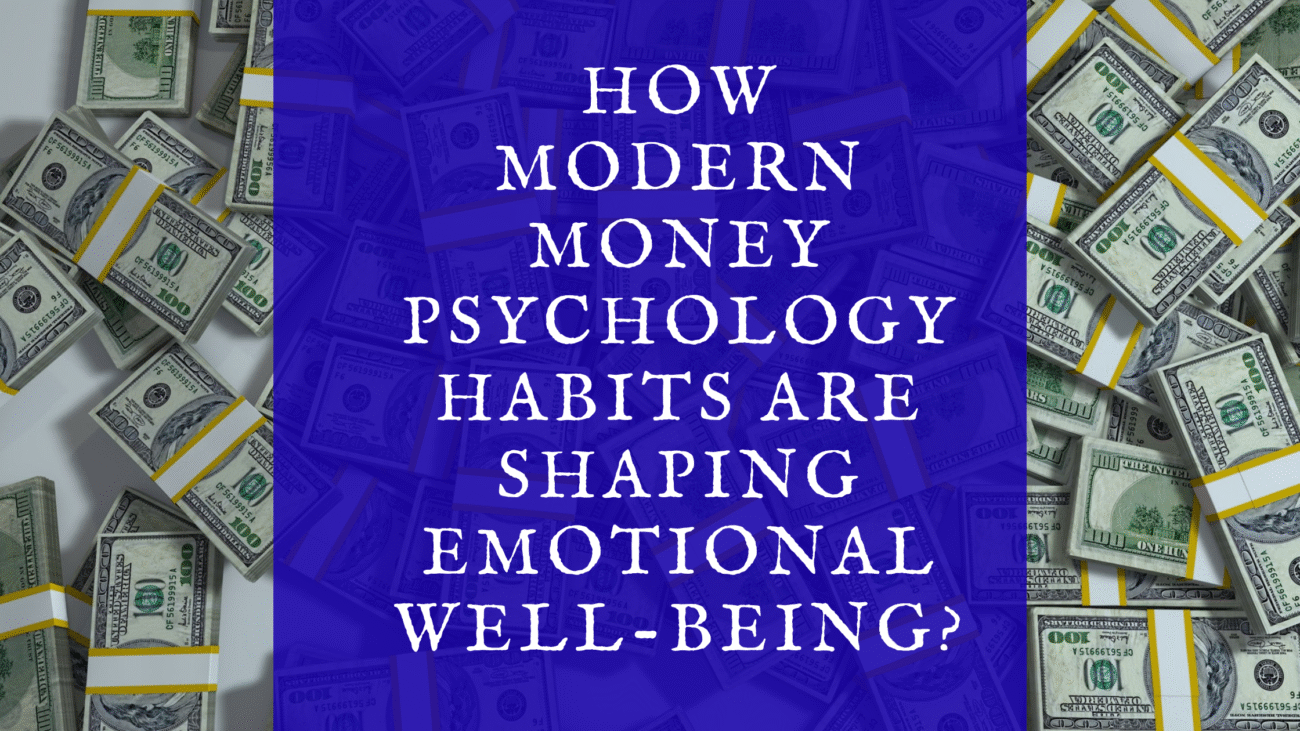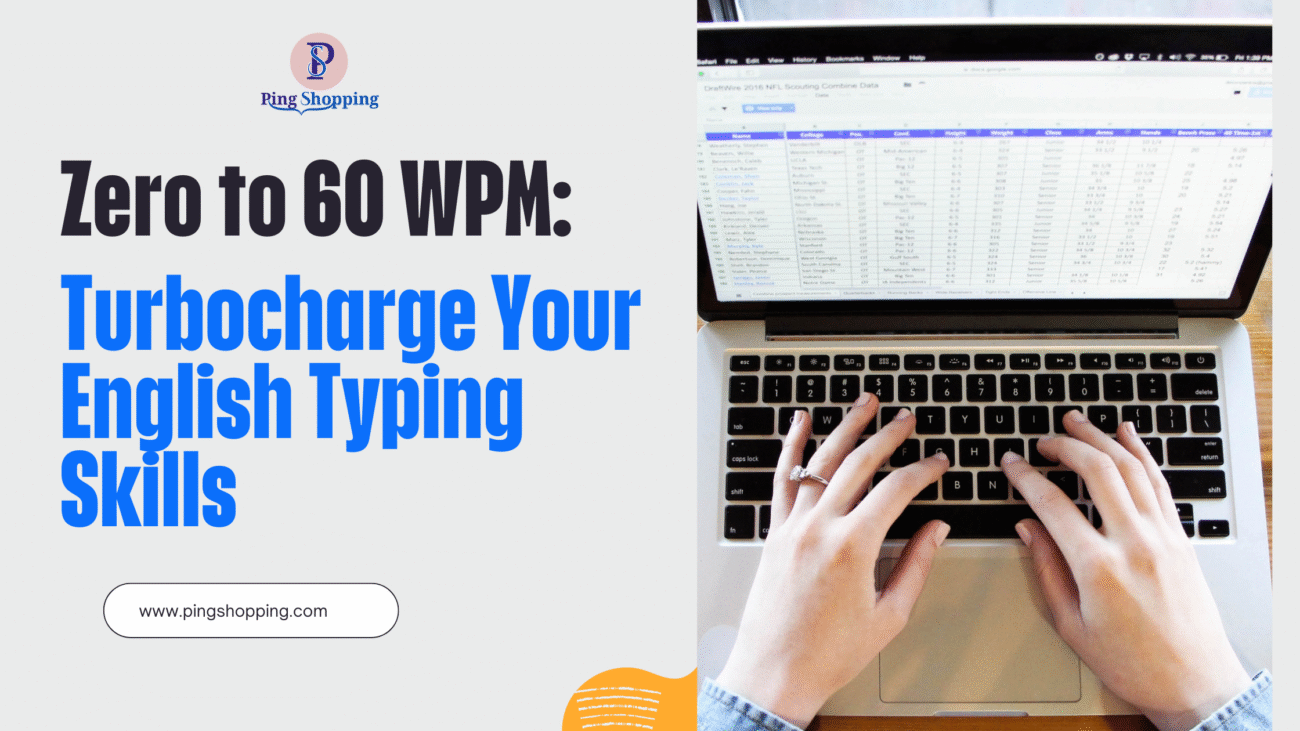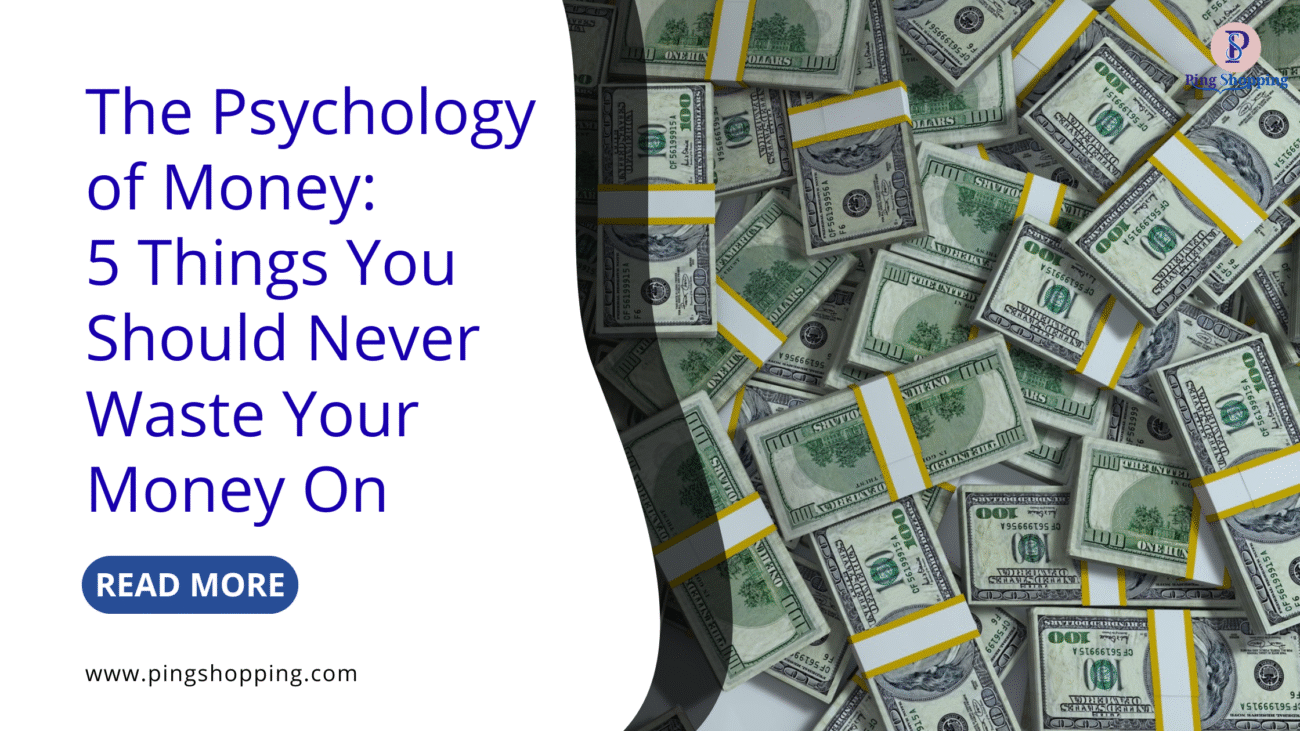In a world where we swipe our phones to buy a cup of coffee and take a peek at our investments with a swipe, money behavior has shifted pretty fast. Yet with our wallets turning more electronic, our money psychology is shifting right alongside.
More than ever, economic behavior is intrinsically linked to mental wellness. Whether it’s the high of the dopamine rush from seeing investments or the nagging fear of rising living costs, our financial decisions are often influenced by emotion in addition to logic. But is this revolution for good or ill?
Table of Contents
Let’s take the plunge into how today’s financial behaviors — budgeting apps, crypto investments, “Buy Now, Pay Later” schemes, and more — drive how we feel, think, and live.
The Emotional Side of Money Psychology and Financial Independence
A body of evidence, and a 2023 study by the American Psychological Association, suggests a direct correlation between awareness of money and reduced money stress. Budgeting apps, spending journals, and bank alert messages give people a sense of control, which translates to higher emotional stability.

Experience comes into play. Individuals such as Rachel aren’t financial wizards—they’re average folks trying to improve their economic habits and mental health. When finance tools become available, emotions soon follow: human beings become less afraid and more at ease to understand money psychology.
Buy Now, Pay Later: A Convenience or a Curse?
However, not all new money tools are emotionally beneficial. Take the popularity of “Buy Now, Pay Later” (BNPL) offerings. Convenient to be sure, but also likely to encourage habitual spending and intrude on financial health.

Derek, a 33-year-old Seattle tech worker, said that BNPL use started with him with a $60 pair of shoes. “It seemed innocent—four payments of $15. But soon I did the same for headphones, a new office chair, and a video game console. Next thing I knew, I had six payments due every month.”
The financial cost? Stress, shame, and a persistent sense of being in arrears, even when he wasn’t so much “broke.”
Experts agree. BNPL schemes reduce friction on expenses but increase long-term money stress. The instant pleasure can lead to buyer’s remorse and emotional patterns of spending—a key money psychology theme.
Social Media & Financial Comparison Traps
It’s impossible to discuss modern-day money behavior without broaching the emotional minefield of money comparison. Instagram influencers standing next to designer lifestyles, or TikTokers breaking down their monthly “six-figure salary” budgets—these moments can engender financial FOMO and beat up on your money self-esteem.
In 2024, a report found that 62% of millennials reported “feeling behind” on finances after reading social media. This had nothing to do with actual income but with perceived insufficiency based on external financial metrics.
“Even when I’m saving and paying my bills on time,” says Samira, a 29-year-old teacher from New Jersey, “I scroll past someone showing off an expensive vacation, and I feel like a failure. Logically, I know it’s curated. Emotionally, it still hits hard.”
This emotional instability is not the cause of bad habits, but of restrictive money beliefs—a basic premise in the psychology of money. It’s a reminder that financial health encompasses not only budget sheets, but also mental boundaries.
Investment Culture and the Age of “Money Mindfulness”
Compared to debt anxiety and comparison, investing—once the exclusive province of suits and Wall Street—has found a new, mindful face.
Through sites like Robinhood, Acorns, and even subreddits such as r/personalfinance, individuals are adopting a longer-term approach to money. And for a surprising therapeutic effect, they are doing so.
Financial literacy is being democratized with creators and podcasts, so people are feeling less stressed and more confident. They’re not just looking for quick wins; they’re rebuilding their money relationship.
Related informational articles
The New Currency of Peace: Financial Boundaries
Perhaps the most potent and yet underrated money habit is the ability to create emotional money boundaries.
Saying no to holidays that blow your budget. Choosing to rent when everybody else is buying. Saying no to marketing emails that encourage you to spend. These behaviors are more than self-interested—more money, trauma recovery.
“There’s power in connecting your money to your values,” says financial advisor and therapist Dr. Liana Moore. “Financial boundaries build emotional safety. They make you feel like you’re in charge—not just of your wallet, but your life.”
This is the best demonstration of empowering oneself financially through understanding oneself, which is at the core of modern money psychology.
Practical Tips to Boost Emotional Well-being Through Financial Lifestyle
- Using budgeting apps
- Stay away from all emotional spending triggers.
- Cut back on BNPL and microcredit usage.
- Balance your social stream
- Celebrate small wins on saving.
Conclusion: Healing Your Relationship With Money
Money Psychology is not just math. It’s mindfulness. Its identity, trauma, and transformation. Our financial habits reflect our inner stories—whether they’re stories of security or fear. New money technologies at our disposal give us new options. But the way we end up using them—and the degree to which we are sensitive to their emotional impact—truly does come down to it.. By incorporating emotional intelligence into our money lives, we don’t just accumulate riches—we construct well-being.
Frequently Asked Questions
What are modern money psychology habits?
Modern money psychology habits are the thought patterns, beliefs, and emotional behaviors that influence how people spend, save, invest, and manage money in daily life. These habits aren’t just about math — they’re shaped by psychology, culture, emotions, and past experiences.
Why do people develop bad money habits?
Bad money habits often arise from emotional triggers (like stress or impulse, learned behavior from childhood) and cognitive biases such as present bias (favoring instant rewards) or social influences that promote spending over saving. Recognizing these psychological triggers is the first step in changing habits.
What is the “pain of paying” and how does it affect habits?
The pain of paying is a psychological concept where people experience a sense of loss when spending money — and the level of this “pain” affects how much they spend. Less pain of paying (as with credit cards or digital wallets) often leads to more spending than when using cash, which feels more tangible.
How can mindful money habits improve financial wellbeing?
Mindful money habits — like pausing before making a purchase, aligning spending with goals, and tracking expenses — help people make intentional, rather than impulsive, decisions. This leads to greater savings, less stress, and stronger financial control.
How can I build better financial habits?
Start by:
✔ Increasing financial self-awareness — understand your emotional triggers
✔ Setting clear financial goals with measurable steps
✔ Using automation for savings or investments, so decisions aren’t emotion-driven
✔ Tracking progress and adjusting habits over time
These strategies help translate good psychology into long-term financial success.
“If you found this article helpful, share it with your circle and follow PingShopping on social media”









